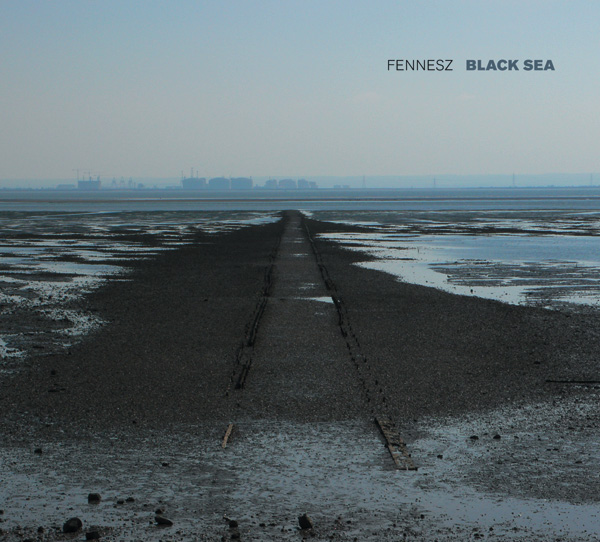
 |
|
 |
Format: CD Label & Cat.Number: Touch TO:76 Release Year: 2008 Note: fourth solo-album
Price (incl. 19% VAT): €14.50 Warning: Currently we do not have this album in stock!
More Info"Christian Fennesz ist der bedeutendste österreichische Gitarrist der Neuzeit. Diese Klassifizierung fehlte eventuell bislang, um das Wirken des Wiener Musikers zu beschreiben. Leider beschreibt auch solch ein Titel das Werk von Fennesz allzu unzureichend. Mit “Gitarrist” ist die Reichweite nicht einfangbar, denn Fennesz ist wohl auch Komponist, Künstler und Sounddesigner/-forscher und all das, was Laptopmusik zur Kunstform hat werden lassen. Das ist nun einige Zeit her. Aber auch das neue Album Black Sea büßt nichts von der früheren Überlegenheit ein. Symphonisches Rauschen giesst sich in epische Formen. Rückkopplungsschleifen bilden hier Songstrukturen und immer wieder kristallin die tonalen Momente, teils mit eben genannter Gitarre, gezupft, gestrichen, gesprochen. Black Sea ist ein cineastisches Album, jedoch nicht deshalb weil es wie Filmmusik klingt, sondern weil diese Musik wie ein guter Film ist. Mit einfachen Mitteln reich umgesetzt. Narrativ, einnehmend und wertvolle Gefühlszustände erzeugend voller innerer Ruhe, welche leider oft zu selten sind." [JI-HUN, de:bug]"Black Sea is the much-anticipated new album from Christian Fennesz, his first since Venice (2004), about which Stylus Magazine's Nick Southall wrote: "Fennesz does with sound what Stan Brakhage did with film, altering its very fabric and texture, employing disorder and error as forms of communication and expression. He forces you to learn a different method of perception and interpretation, to look beneath the chaos that seems to govern the movements of life and find the patterns beneath." Fennesz's career has come a long way since Instrument, his debut for Mego in 1995, and his first solo album Hotel Paral.lel which followed in 1998. Endless Summer (Mego, 2001) brought him to a much wider audience and Venice underlined his mastery of melody and dissonance. His songs usually embody the skillful application and manipulation of dense sonic textures with a genuine feel for the live, and real-time. Black Sea features guitars that rarely sound like guitars; the instrument is transformed into an orchestra. Fennesz lists the elements used to make the compositions: "Acoustic and electric guitars, synthesizers, electronics, computers and live-improvising software loop." On "Glide," Fennesz duets with New Zealand's Rosy Parlane, whose work is also released on Touch. Fennesz also teams up with eMego artist Anthony Pateras whose prepared piano features on "The Colour of Three." Fennesz pushes his work into a more classical domain, preferring the slow reveal to Venice's and Endless Summer's more song- based structures. Jon Wozencroft's artwork makes visible this carefully hidden world resting beneath the surface of "the first impression." A series of shots, taken in quick succession as the tide recedes, reveals a world of specific activity only visible at a particular time and place, histories appearing and disappearing." [press release] " Which came first Tim Hecker or Christian Fennesz? If one is to merely look at the discographies of the twin kings of digitally tricked out guitar sculpting, the chronological answer is obvious: Christian Fennesz. But in the four years that have transpired between his brilliant album Venice and the 2008 opus Black Sea, Fennesz must have seen a younger protege in Tim Hecker coming up in the rear view mirror with his own dramatic sound for smeared guitar whose beauty is similarly rendered through error. Not only does Black Sea feel like a response to Tim Hecker's work, it also stands as Fennesz' most fully realized album, perhaps even more so than the sunburst explosion of meta-pop on Endless Summer. Fennesz works best in the cold, with ice, snow, and frost dusting the strings of his guitar and seeping into the circuitry of his computer; and the cold landscape is exactly where he situates himself on Black Sea. Not surprisingly, Touch's Jon Wozencroft perfectly matches a photograph of an abandoned train track set onto a barren wintry landscape, looking a hell of lot like the photographs that Anselm Keifer uses as a background over which he dumps tar, paint, cement, lead, ash, and whatnot into his alchemical paintings. Black Sea opens with the fizzling crunch of digital errata getting mangled even further by digital means, with Fennesz sculpting a sea swell of a half melody in the distance. Considering the contemplative and cold nature of the rest of the album, this track is a bit discordant; but Fennesz isn't going for the Menche / Merzbow attack, just something of a wake-up call. But gradually, even this first burst of noise quells in a plaintive round of finger picking on the guitar, out of which a beautiful cloud of vaporized drone begins to amass and a subharmonic throb of distortion settles in. These sounds become the template for the rest of the album, all wrapped in gray, muted timbres. When noise bursts through Fennesz' circuits, the attack almost immediately blurs into clustered loops, drones, and sympathetic noises to smooth the edges into a shimmered glisten of remarkable beauty that exhibits a cold, overcast, and gray soundsmear, certainly on par with the sleepytime shoegaze of My Bloody Valentine. After an exceptional collaborative track with Rosy Parlane of lunar landscape ambience riddled with dust before opening into a hymnal melody, Black Sea comes to an end with one of Fennesz' best tracks ever in "Saffron Revolution," with its soaring vapor trail of tone- bent guitar drone and a majestic crescendo of sustained, soft focus distortion. A truly marvellous piece of work." [Aquarius Records review] |
| © 2007 Drone Records | | Celler Strasse 33, 28205 Bremen, Germany | Privacy and cookies policy | Impressum / Allgemeine Geschaftsbedingungen / Haftungsausschluss | Links to the scene |